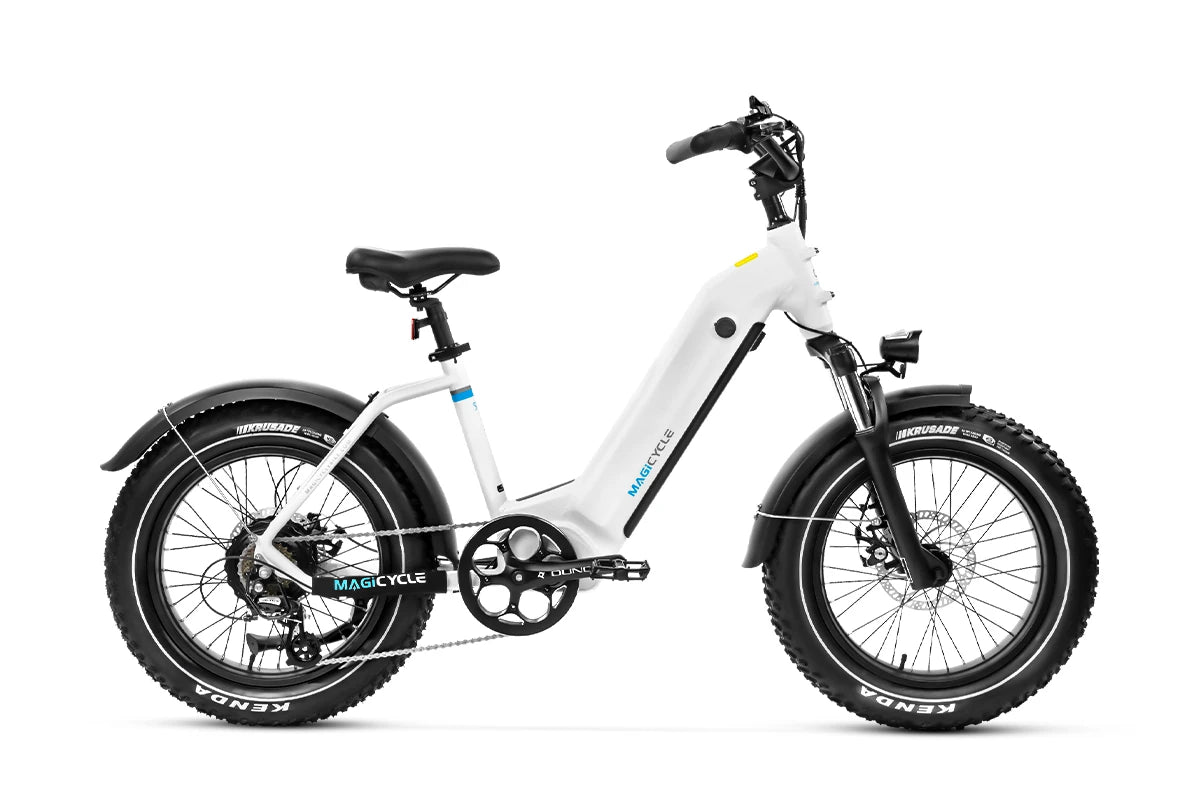In recent years, the urban commuting landscape has witnessed a significant transformation. Among the most notable changes is the increasing popularity of step-thru e-bikes. These innovative bicycles are revolutionizing the way people navigate city streets, offering a blend of convenience, efficiency, and sustainability. This article delves into the rise of step-thru e-bikes in the urban commuting industry, exploring their benefits, the factors driving their adoption, and their potential impact on urban mobility.

Understanding Step-Thru E-Bikes
Step-thru e-bikes, also known as low-step or open-frame e-bikes, are designed with a frame that allows riders to easily mount and dismount the bicycle. Unlike traditional bikes with a high top tube, step-thru e-bikes feature a lower frame, making them accessible to a wider range of riders, including those with mobility issues or those who prefer a more comfortable riding experience.
These e-bikes are equipped with electric motors that provide pedal assistance, making it easier to tackle hills and long distances. The combination of a user-friendly design and electric assistance has made step-thru e-bikes a popular choice for urban commuters seeking a practical and eco-friendly mode of transportation.
Benefits of Step-Thru E-Bikes for Urban Commuters
The rise of step-thru e-bikes in the urban commuting industry can be attributed to several key benefits:
- Accessibility: The low-step frame design makes it easier for riders of all ages and physical abilities to use the bike. This inclusivity is particularly important in urban areas where diverse populations require versatile transportation options.
- Convenience: Step-thru e-bikes are ideal for city commuting, allowing riders to easily hop on and off the bike, even while wearing business attire or carrying bags. This convenience is a significant advantage for those who need to make multiple stops during their commute.
- Environmental Impact: By choosing step-thru e-bikes over cars or public transportation, urban commuters can reduce their carbon footprint. E-bikes produce zero emissions and contribute to cleaner air and less congested streets.
- Health Benefits: While the electric motor provides assistance, riders still engage in physical activity, promoting a healthier lifestyle. Regular cycling can improve cardiovascular health, reduce stress, and enhance overall well-being.
Factors Driving the Adoption of Step-Thru E-Bikes
Several factors have contributed to the growing popularity of step-thru e-bikes in urban areas:
- Technological Advancements: Improvements in battery technology and motor efficiency have made e-bikes more reliable and affordable. Longer battery life and faster charging times have also enhanced the practicality of e-bikes for daily commuting.
- Urbanization: As cities become more densely populated, the need for efficient and sustainable transportation options has increased. Step-thru e-bikes offer a viable solution to the challenges of urban mobility.
- Government Initiatives: Many cities and governments are promoting cycling as a means to reduce traffic congestion and pollution. Incentives such as bike-sharing programs, dedicated bike lanes, and subsidies for e-bike purchases have encouraged more people to adopt step-thru e-bikes.
- Changing Attitudes: There is a growing awareness of the environmental and health benefits of cycling. As more people prioritize sustainability and personal well-being, step-thru e-bikes have emerged as an attractive option for urban commuting.
The Future of Step-Thru E-Bikes in Urban Mobility
The rise of step-thru e-bikes in the urban commuting industry is likely to continue as cities evolve and adapt to new transportation needs. With ongoing advancements in technology and infrastructure, step-thru e-bikes have the potential to become a cornerstone of urban mobility.
As more people embrace this mode of transportation, we can expect to see further innovations in e-bike design, increased investment in cycling infrastructure, and a shift towards more sustainable and efficient urban commuting solutions. The future of urban mobility is bright, and step-thru e-bikes are poised to play a pivotal role in shaping it.
In conclusion, the rise of step-thru e-bikes in the urban commuting industry represents a significant shift towards more inclusive, convenient, and eco-friendly transportation options. By understanding the benefits and factors driving their adoption, we can better appreciate the transformative impact of step-thru e-bikes on urban mobility and look forward to a more sustainable future.






